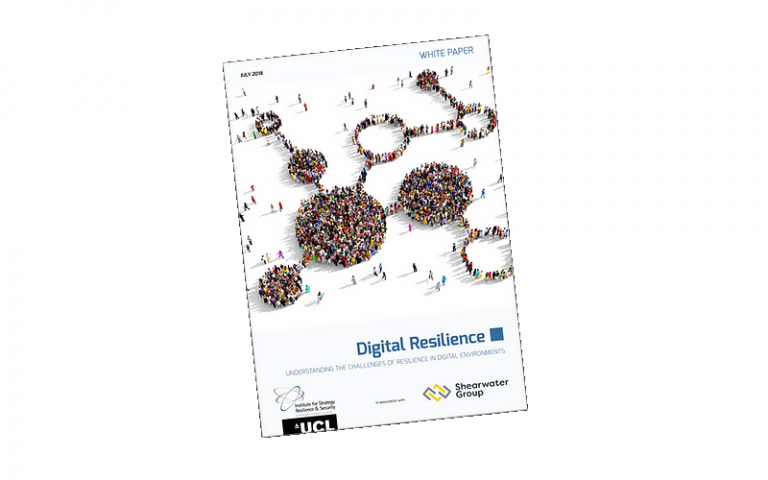'Digital resilience' crucial for organisations, argues UCL institute
A new publication by a UCL institute argues that ‘digital resilience’ is going to be increasingly critical for organisations in a fully-networked digital age.

3 August 2018
About
A new publication from the Institute for Strategy, Resilience & Security (ISRS) at UCL argues that digital resilience is about acquiring a dynamic state of continual evolution and learning within the digital environment. Organisations should use new challenges not merely to rebound but to bounce forward, with crises becoming pointers towards opportunity and catalysts for evolution. The white paper poses key questions for leaders to define, identify and address digital resilience issues within their organisations and outlines the principles of a strategic process to identify digital resilience issues.
In an an age when organisations are becoming increasingly boundary-less, more ‘digitally dependent’ and more vulnerable to the pressures of digital competition they are exposed to potential new risks. This paper argues that they should continually adapt their strategies, balancing the need to adopt new technology, to maintain pace with competitors, with flexible security and resilience to mitigate against these risks.
Traditional organisations may not have fully explored the degree to which their processes are dependent upon irreplaceable digital processes. This report sets out how known risks, such as software and cloud technology failures, cyberattacks and biases created by machine learning algorithms, can combine and cascade to impact these core processes in unexpected ways to cause business failure. It explains how organisations can turn these potential crises into opportunities to improve business processes.
The Rt Hon. Lord Reid of Cardowan, Executive Chairman of ISRS said, "This new white paper attempts to draw out some of the most important issues for senior executives and illustrates the need for assessment of digital resilience in terms of the capability of their organisations to anticipate, respond, learn and evolve."
 Close
Close

